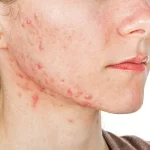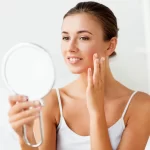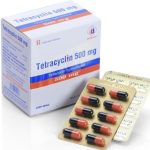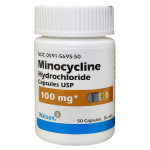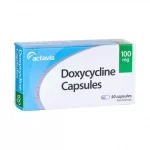Many people who suffer from acne outbreaks turn to Zinc for acne treatment options. Zinc has proven amazingly effective in helping to diminish and prevent acne eruptions. This vital trace mineral has been found to help the skin rid itself of undesirable toxins, and some studies have revealed that people who have a deficient amount of Zinc also have acne related conditions. Zinc is derived from seeds, nuts, bran products, and some animal meats. It can also be obtained in the form of oral supplements. In addition to helping the body defend itself from acne causing inciters, Zinc can be consumed to improve immune system processes.
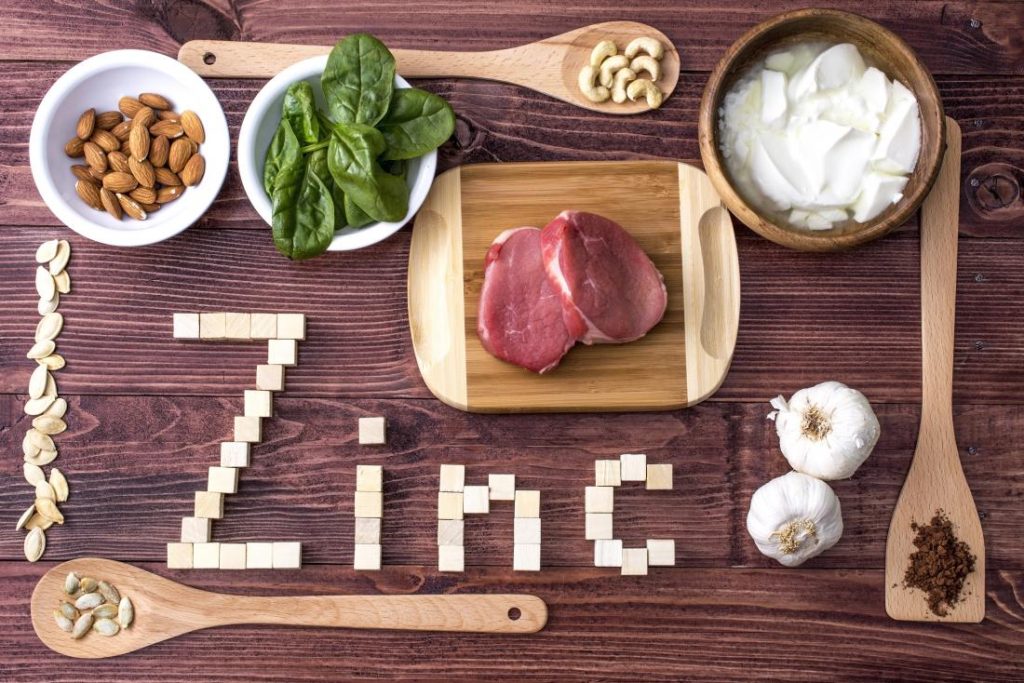
How Zinc for Acne Defense and Prevention Works
Zinc is a mineral that helps improve the function of the thyroid, the immune system, and Zinc ensures that the body uses insulin properly. If your body becomes insulin resistant, an increase in blood sugar levels can lend to the onset of inflammatory conditions, including acne outbreaks. Zinc also helps in blood clotting processes, cell growth, and immune system functioning. When your immune system is functioning properly, you will be better able to defend against acne causing agents like bacteria on the skin. Since Zinc aids in skin growth and renewal, it also helps ensure that new skin replaces dead skin cells, so your skin remains looking healthy and fresh.
The mineral Zinc even has antioxidants; this means that it naturally helps your body in defending itself against cancer causing free radicals. These same free radicals are also associated with the onset of wrinkles, skin ailments, and the signs of aging too. There are signs and symptoms that can identify whether or not your diet is deficient in Zinc. People who have a deficiency of Zinc may develop psoriasis, acne, dermatitis, skin problems, insufficient wound healing, a lack of the ability to smell or taste things, weight loss, appetite loss, and growth issues. Zinc deficiencies can also lend to psychological conditions like depression too: when experiencing depression or similar mood disorders, a person can become emotionally stressed, which can, in turn, contribute to acne outbreaks.
Zinc for acne treatments commonly work because Zinc plays a role in balancing hormones in the body. What’s more, the mineral helps in regulating the oil gland and the production of androgen; when there is an imbalance of androgen in the body, excessive oils and sebum result. Zinc, when consumed properly, can help in restoring the balance of hormones while simultaneously helping to restore the appropriate amount of oil production. Meanwhile, Zinc assists the body in absorbing both Vitamin A and B so that the immune system can function with greater efficiency.
How to Consume Zinc for Acne
If you are considering increasing the amount of Zinc in your diet or you plan on taking a supplement, you need to be careful about the amount of Zinc for acne that you consume or use. Researchers have revealed that while Zinc has positive benefits, it can also have dangerous effects if too much Zinc is consumed or absorbed through the skin over time. Some studies have found that the combined use of an antibiotic for acne, like erythromycin, which can be applied topically, along with an increase in Zinc, can prove beneficial when dealing with acne conditions.
Zinc can be derived from a great number of food sources. Through food consumption, your body is capable of absorbing anywhere from 20 to 40% of the Zinc contained in the food selections you choose. Foods containing Zinc for acne defense and prevention include whole grains, wheat germ, sunflower seeds, seafood, red meat, pumpkin seeds, poultry, nuts, nettle, mushrooms, mullein, milk thistle, legumes, fortified cereals, eyebright, egg yolks, dandelion, chamomile, cayenne, burdock root, Brewer’s yeast, brazil nuts, and alfalfa. Additional Zinc for acne food sources include whole grains, tofu, tahini, Swiss cheese, soybeans, shrimp, shellfish, pumpkin, pinto beans, peanuts, miso, lima beans, legumes, green beans, gouda cheese, crab, cooked greens, and black eyed peas.
As per the guidelines established by the National Academy of Sciences, teen males ages 14 to 18 require no more than 11 mg of Zinc daily, while female teens ages 14 to 18 only require 9 mg of Zinc each day. Males over the age of 19 still require 11 mg of Zinc, but adult females only need 8 mg of Zinc each day. Pregnant females require 11 to 12 mg of Zinc, and women who are breastfeeding only require 12 to 13 mg of the trace mineral on a daily basis.
Zinc gluconate and Zinc oxide can be applied as topical applications on acne eruptions. Zinc for acne topical applications must be used as directed. Zinc oxide helps in diminishing the amount of oils and sebum that is present on and in the skin. Zinc gluconate works in a similar fashion to help in reducing to oils in your skin. The oxide ointment is commonly made with a barrier cream and a calamine lotion so that it can help minimize inflammation and rash like conditions. This type of topical treatment is not recommended for nursing females or pregnant women however. If you have an allergy to wax, mineral oil, parabens, petroleum jelly, cod liver oil, lanolin, dimethicone, or Zinc, you cannot use the product. Zinc gluconate is not only offered as a topical medication, but it can be consumed as an oral medication too. When orally consumed, the Zinc gluconate helps in reducing inflammatory responses in the body.
Tips for Taking Zinc for Acne
You can also take a supplement to add Zinc to your daily intake, but you need to make sure you are taking the appropriate amount for your age and sex. Zinc can sometimes cause an upset stomach so you need to take the supplement with eight ounces of juice or water. If you have a sensitive stomach, you will want to consume a small meal before taking the oral supplement. It is not recommended that you take calcium or iron supplements along with Zinc supplements simultaneously. However, if you do make use of Zinc supplements, you should consider taking a copper supplement as well since Zinc can create a copper deficiency in the body. You will need to take a copper supplement of at least 2mg every day when taking Zinc.
Whether you use topical or oral Zinc for acne solutions, make sure you talk with your doctor first before doing so. You need to follow the product use instructions, and you should never consume more than 100mg of Zinc on a daily basis. When taking Zinc, also remember that you should make sure you are getting enough essential fatty acids in your diet like coconut oil or cod liver oil; the latter works with Zinc to help keep your hormones balanced. While you are using Zinc supplements or treatments, also make sure that you refrain from using other over the counter acne products. Give your body time to experience the natural effects produced by the Zinc supplementation. Finally, if you are using antibiotics like Tetracycline, Minocin, Declomycin, Floxin, Noroxin, Avelox, Levaquin, Tequin, or Cirpo, Zinc supplements can diminish their efficiency.

